
23 Dec 7 Art-Historical Fun Facts That Will Level Up Your Holiday Table Banter
Source Credit: Content and images from Artnet News. Read the original article - https://news.artnet.com/art-world/art-historical-facts-impress-holiday-table-2588879
Sitting down to a holiday feast with family can be a special time for loved ones can reconnect and enjoy some much-needed togetherness. It can also be a potential minefield, with politics and religion threatening to turn dinner into a family feud.
Luckily, Artnet News is here to help, with a selection of art historical facts that we promise are safe topics of conversation to help close out the year with good vibes only. Plus, these fascinating but little-known factoids will make you look cultured and sophisticated—perfect if you’re trying to impress judgmental parents or make a good first impression with a new significant other’s family.
From lollipops to craters on Mercury, here’s our fully vetted list of snackable art facts to serve up alongside the roast and mashed potatoes this year.
Salvador Dalí designed the Chupa Chups lollipop

Enric Bernat, who founded Chupa Chups in 1958. Photo by Bernard Annebicque/Sygma/Sygma via Getty Images.
Everyone knows that the prettiest lollipop—even if it tastes fairly mid—is the Chupa Chups, with its cursive red logo on a yellow flower. Turns out, it’s a design by none other than the great Surrealist Salvador Dalí, and it helped make the now-beloved brand a success.
The planet Mercury honors famous artists
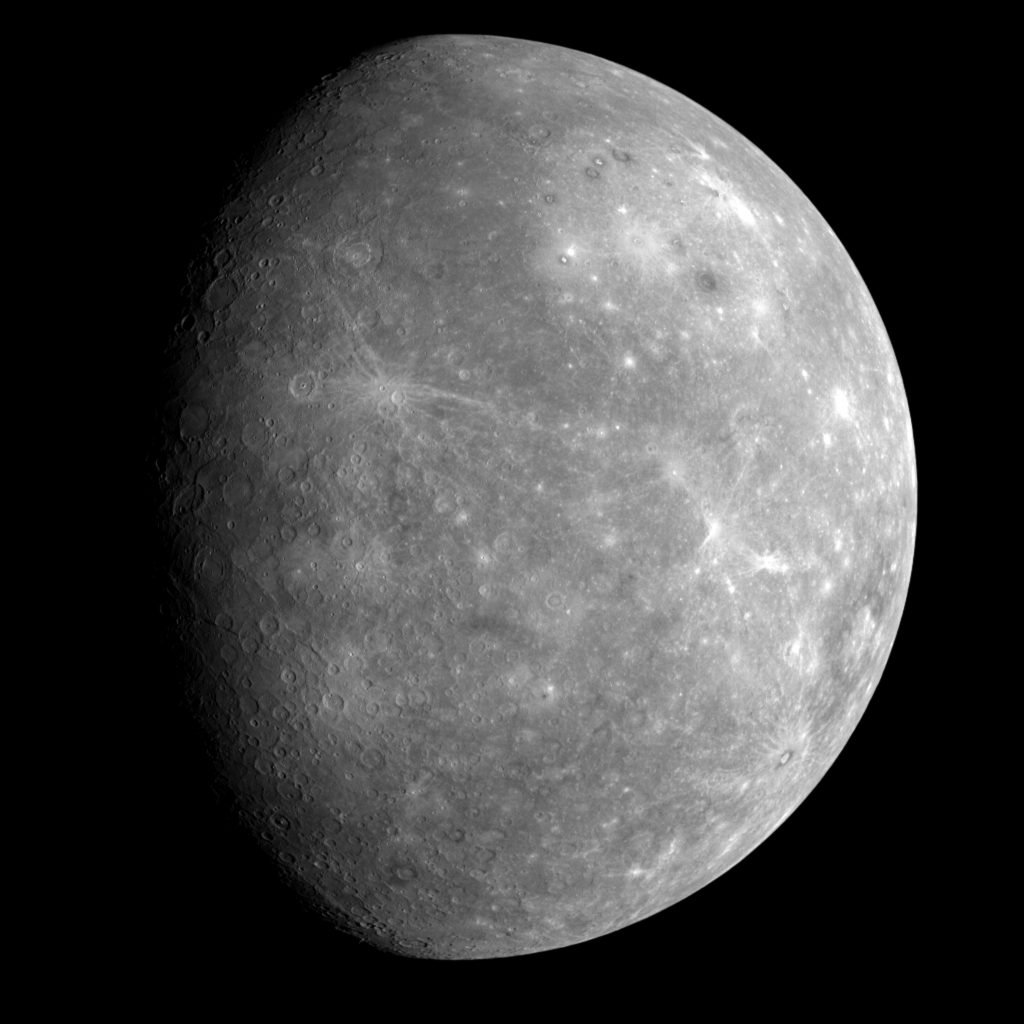
IN SPACE – JANUARY 14: The planet Mercury is shown by NASA’s Messenger spacecraft. Photo by NASA via Getty Images.
In outer space, most of the planets and other celestial bodies take their names from mythology. But on the surface of tiny Mercury, baking in the hot sun, the craters are all named after influential creatives, including writers, artists, and choreographers such as Alexander Calder, Vincent van Gogh, and Augusta Savage. Ruth Asawa joined the list recently as well.
Claude Monet had eyes like a bee
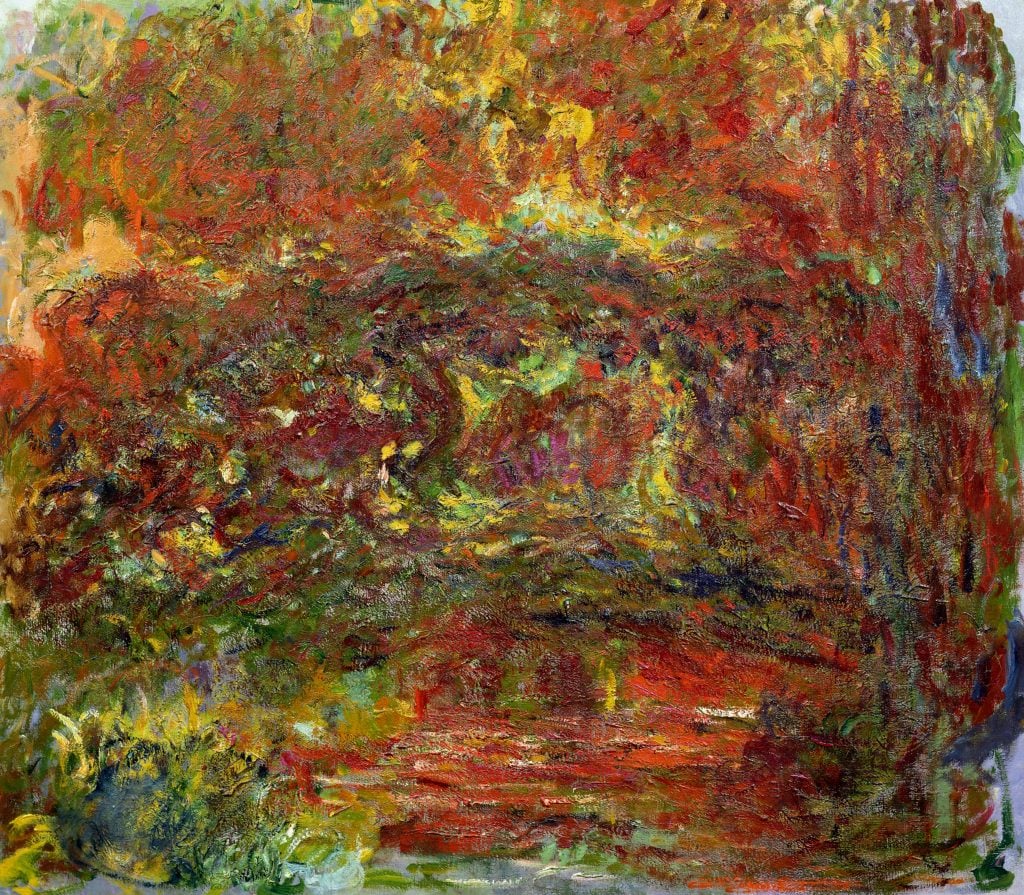
Claude Monet, The Japanese bridge (Le Pont Japonais), 1918–24. The artist made this work while he suffered from cataracts, rendering his familiar Japanese Bridge nearly unrecognizable. Collection of Musée Marmottan Monet, Paris. Artist Monet, Claude (1840-1926). Photo by Fine Art Images/Heritage Images via Getty Images.
Grandma isn’t the only one with failing eyesight. The great Impressionist Claude Monet painted some wild, abstract looking canvases before he had cataract surgery—yes, way back in 1923—to reverse his blindness. In the process, the surgeons removed the lenses of his eyes, allowing the artist to see ultraviolet light much like a bee.
Leonardo da Vinci was probably a pescatarian
The evidence suggests that in addition to being an engineer, architect, artist, and scientist, Leonardo da Vinci was also against eating meat—we actually have his shopping lists!
There’s a can of poop at the MoMA
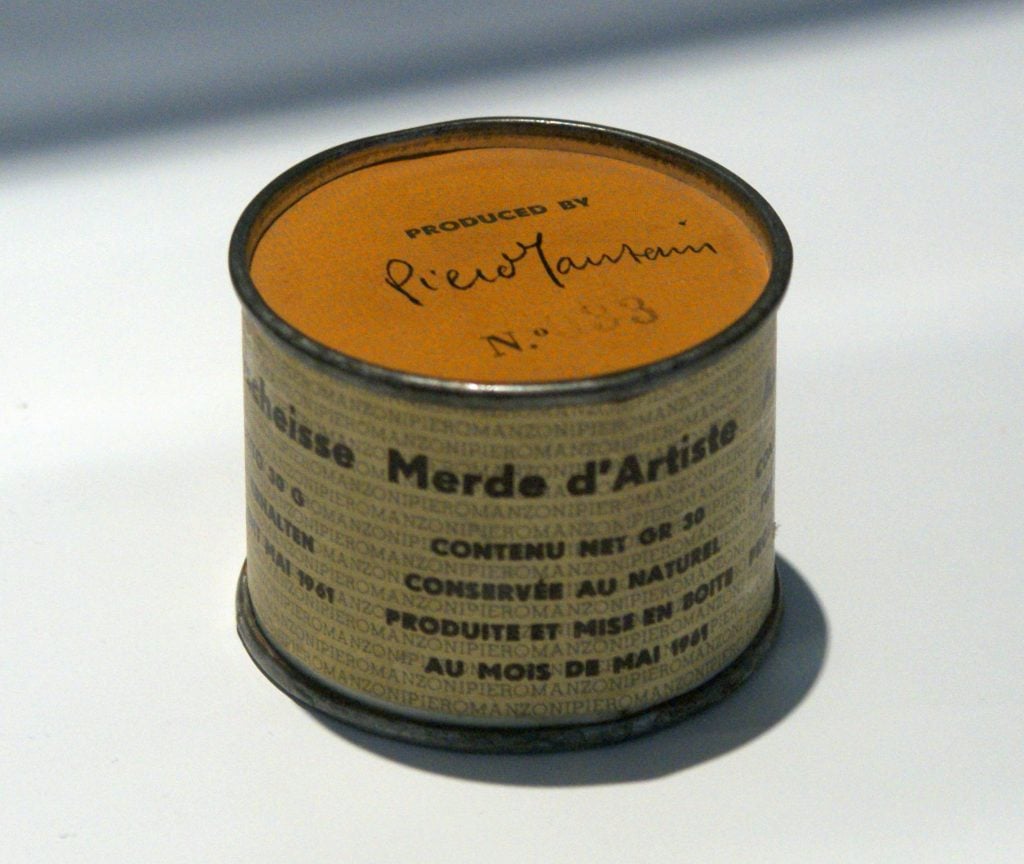
Piero Manzoni, Artist’s Shit (1961). Photo: Jens Cederskjold, Creative Commons.
If someone brings up that $6 million banana, you can tell them that New York’s Museum of Modern Art owns a sculpture that Italian Conceptual artist Piero Manzoni claims is a can full of his own excrement. He made the work in an edition of 90, and one sold in 2016 for $300,000.
This peachy-keen cocktail is named after an Italian Renaissance great
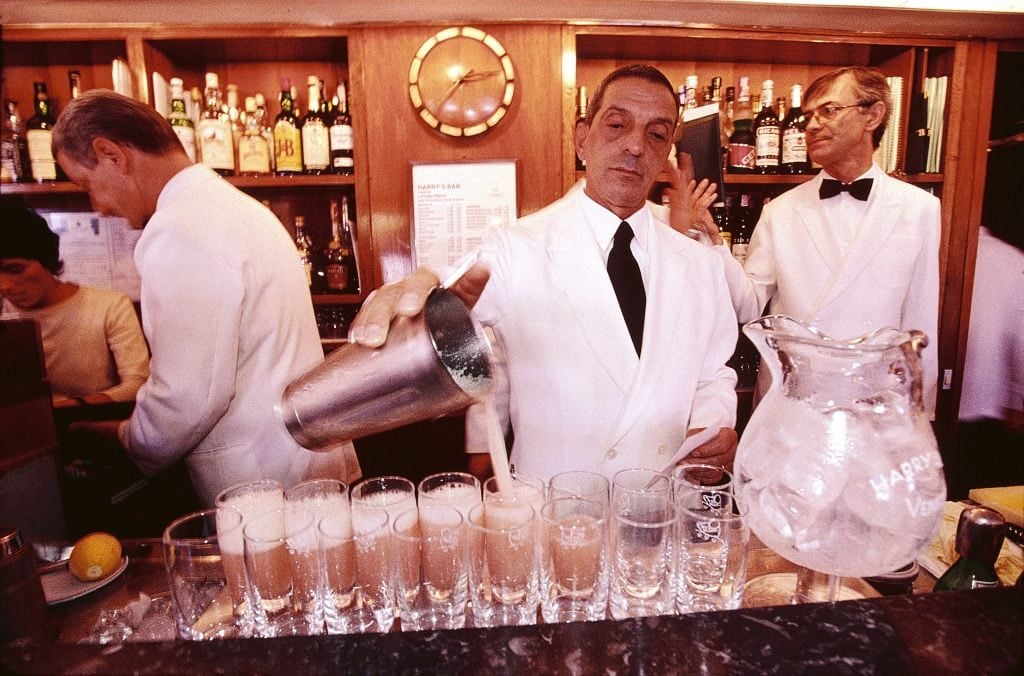
Making Bellinis at Harry’s Bar. Photo: Sylvain GRANDADAM/Gamma-Rapho via Getty Images.
The bellini, that fizzy and refreshingly delicious drink of prosecco mixed with peach nectar invented at Harry’s Bar in Venice, is actually named after Giovanni Bellini.
Alfred Hitchcock based the Psycho house on an Edward Hopper painting
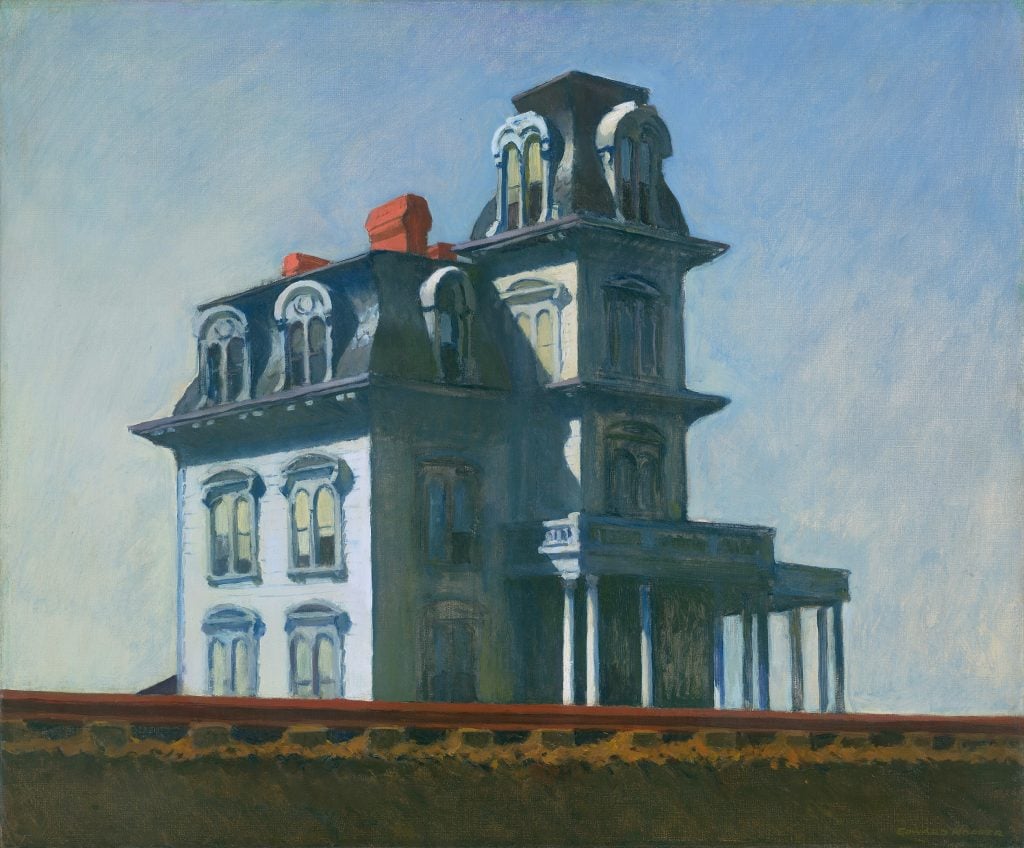
Edward Hopper, House by the Railroad (1925). Collection of the Museum of Modern Art, New York.
One of cinema’s most famous homes, the Victorian mansion of Norman Bates in Alfred Hitchcock’s 1960 masterpiece Psycho, actually comes from a (far less creepy) painting by famed American artist Edward Hopper.
Source Credit: Content and images from Artnet News. Read the original article - https://news.artnet.com/art-world/art-historical-facts-impress-holiday-table-2588879

